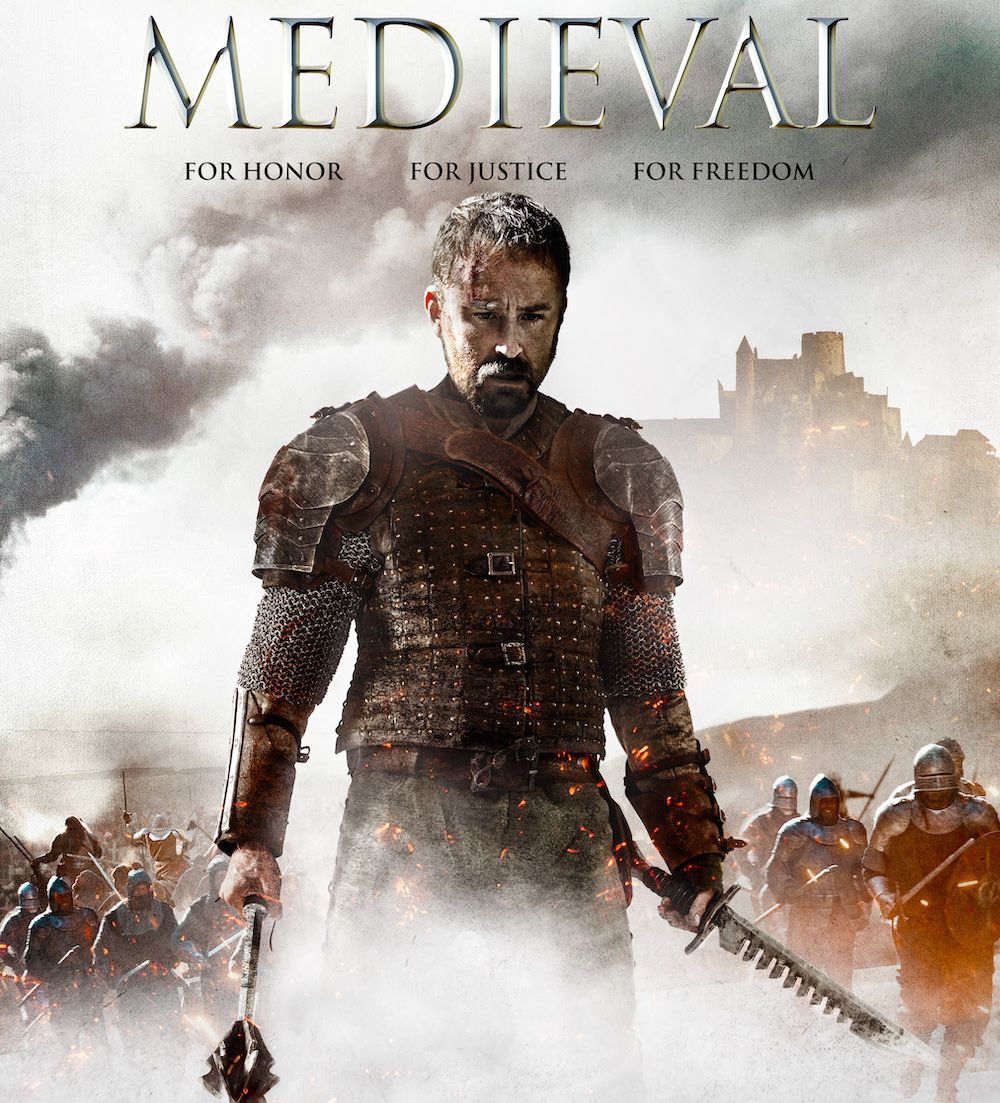In the early fifteenth century, the Czech lands were in turmoil. The Teutonic Order, a religious, military order, was seeking to expand its territory. At the same time, the Holy Roman Empire was also exerting its influence. Into this mix came Jan Zizka, a skilled military commander and leader of the Czech Hussites.
Over the next few years, Zizka would lead his troops to victory against both the Teutonic Order and the Holy Roman Empire. In doing so, he would become one of the most celebrated warlords in Czech history. Medieval is a film that tells its story. Directed by Petr Jákl, it stars Ben Foster as Zizka and Sophie Lowe as his wife, Helena. Michael Caine also appears in a supporting role. With its mix of action, drama, and history, Medieval is sure to be an intriguing and entertaining film.
Jan Zizka is a Czech national hero and one of the country’s most renowned military leaders of all time. Born in the 14th century, he served as a general during the Hussite Wars and was instrumental in leading the Czechs to victory against their enemies. He is widely acclaimed for his innovative use of the Wagenburg, a mobile fortress made up of wagons arranged in a circle to provide protection from enemy attacks.
After his death, Zizka was given the title of ” Protector of the Bohemian Crown” by King Wenceslaus IV, and his memory has been honored in numerous ways over the centuries. In 2022, his life will be commemorated in a new film titled Medieval. The movie will tell the story of Zizka’s military exploits and focus on his role in shaping Czech history. It should be an interesting and instructive insight into one of the country’s most important figures.
Is Medieval (2022) based on a true story?

Yes, the film is based on the real-life story of Jan Zizka, a 15th-century military leader from the Czech Republic. Zizka was a skilled commander who led his troops to victory against both the Teutonic Order and the Holy Roman Empire.
The plot of the film starts sometime at the end of the 14th century when Wenceslaus IV is the king of Bohemia and the Roman emperor at the same time. After his father, Charles IV, Wenceslas succeeded him as king, but his poor leadership caused the realm to appear to be falling apart. Henry III of Rosenberg, the most powerful nobleman in the nation, continues to seize the assets of lower nobles one after another until one of them begins to fight back.
Young Jan Ika, a knight and mercenary who will eventually command the Hussite army is the valiant hero. Rosenberg murdered practically every member of his family, and Ika sought retribution. The document between Rosenberg and the League of Lords outlining their plot to overthrow the monarch is given to the warrior by Rosenberg’s fiancée Katherine, who also falls in love with him. While fighting against Rosenberg’s troops, Žižka finds out that it was Wenceslaus who ordered the massacre of his family so he could get rid of potential opponents before taking over the throne from Charles IV.
In a final battle, Žižka defeats Rosenberg’s league and captures him, but he decides to spare his life because Katherine pleads for mercy. He brings Rosenberg to Prague, where he shows him proof of his treachery to Wenceslaus in front of lords assembled there and gets them to agree to dethrone Wenceslaus. Katherine becomes queen and later marries Žižka.
At first, it was like they were just a harmless group of history buffs, only to be proved wrong. They were ruthless and determined, and they wanted nothing more than to return the world to the days of knights and castles. They succeeded in kidnapping the king and holding him for ransom. Wenceslas was set free by the king’s army, but he was forced to accept a demeaning peace.
Žižka must therefore decide between two options: give up the struggle for justice in exchange for a greater status in the royal court, or continue fighting despite being alone herself and without support. He chooses the latter, and as a result, he becomes a symbol of hope for those who want to resist the medievalists’ reign of terror.
So, what is so special about the medieval era? What elements make it unique compared to other periods of history? One aspect that sets the medieval era apart is the widespread use of castles. Castles were not only used as homes for nobility but also as fortifications to protect against invaders. Another key feature of the medieval era was the feudal system, in which lords and knights rented land from landowners in exchange for military service. This system helped to maintain order during a time when there was no central government.
The medieval era was also a period of great religious change, as the Christian church underwent a series of reforms. These changes helped to shape the modern world and laid the foundations for the Renaissance.
The film is a perfect portrayal of the tumultuous medieval era. It successfully enlivens history and gives the viewer a great understanding of what life was like during that time. The plot of the film sets in motion a series of events that leads to bloodshed and eventually to Žižka’s victory. The movie is craft-fully shot and edited, with great attention to detail paid to sets and costumes. It is an excellent portrayal of medieval life and would be enjoyed by anyone interested in this period of history.
